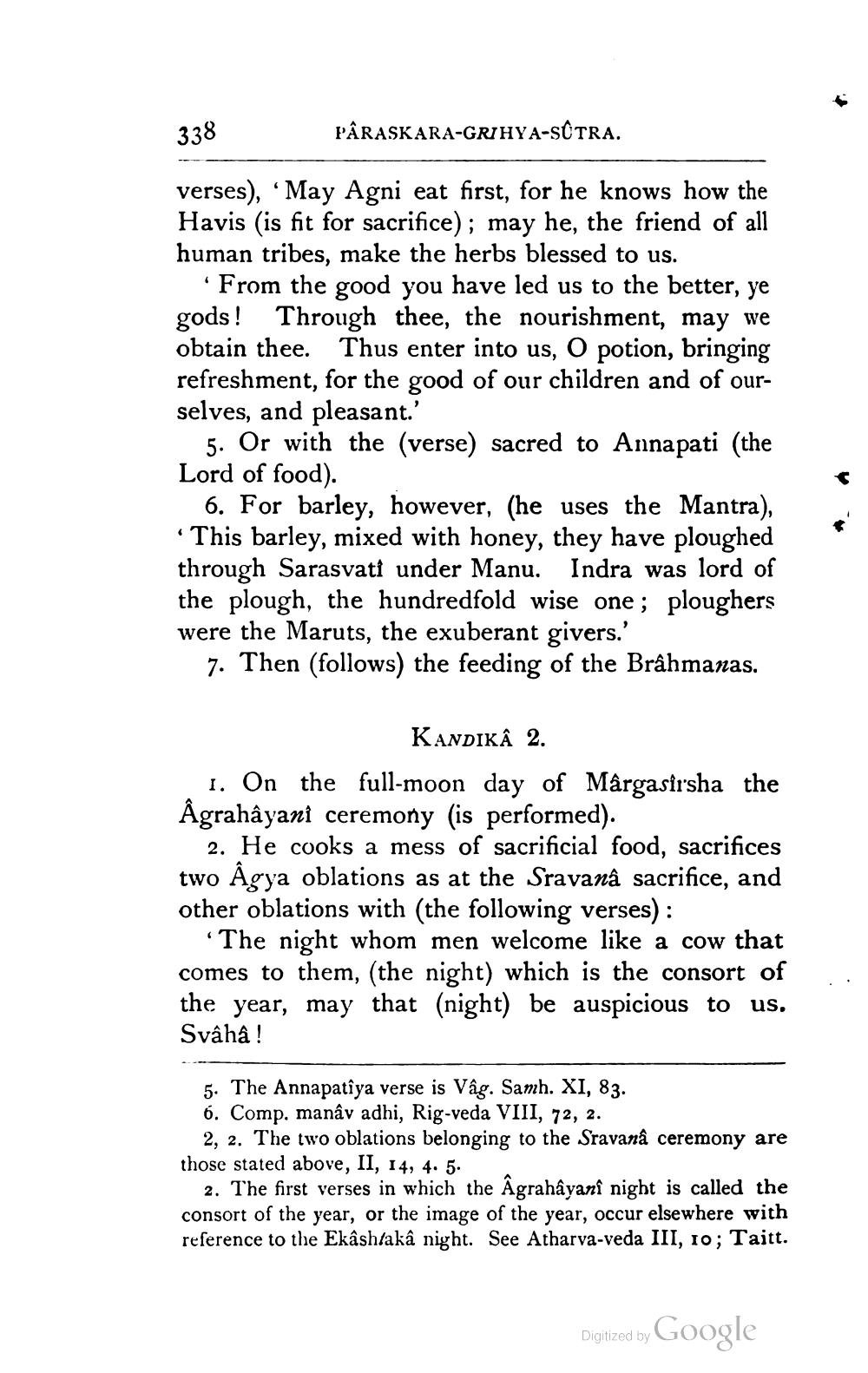________________
338
PÂRASKARA-GRIHYA-SÛTRA.
verses), 'May Agni eat first, for he knows how the Havis (is fit for sacrifice); may he, the friend of all human tribes, make the herbs blessed to us.
From the good you have led us to the better, ye gods! Through thee, the nourishment, may we obtain thee. Thus enter into us, O potion, bringing refreshment, for the good of our children and of ourselves, and pleasant.'
5. Or with the (verse) sacred to Annapati (the Lord of food).
"
6. For barley, however, (he uses the Mantra), This barley, mixed with honey, they have ploughed through Sarasvati under Manu. Indra was lord of the plough, the hundredfold wise one; ploughers were the Maruts, the exuberant givers.'
7. Then (follows) the feeding of the Brahmanas.
KANDIKA 2.
1. On the full-moon day of Mârgasirsha the Âgrahâyani ceremony (is performed).
2. He cooks a mess of sacrificial food, sacrifices two Agya oblations as at the Sravanâ sacrifice, and other oblations with (the following verses) :
'The night whom men welcome like a cow that comes to them, (the night) which is the consort of the year, may that (night) be auspicious to us. Svâhâ!
5. The Annapatîya verse is Vâg. Samh. XI, 83.
6. Comp. manâv adhi, Rig-veda VIII, 72, 2.
2, 2. The two oblations belonging to the Sravanâ ceremony are those stated above, II, 14, 4. 5.
2. The first verses in which the Âgrahâyanî night is called the consort of the year, or the image of the year, occur elsewhere with reference to the Ekâsh/akâ night. See Atharva-veda III, 10; Taitt.
Digitized by Google




